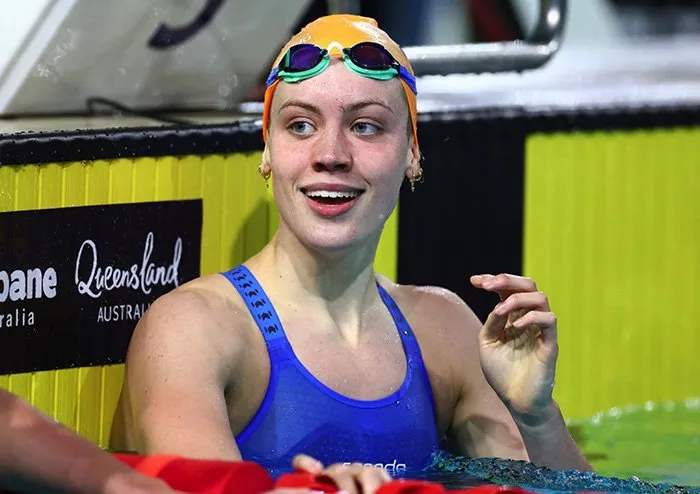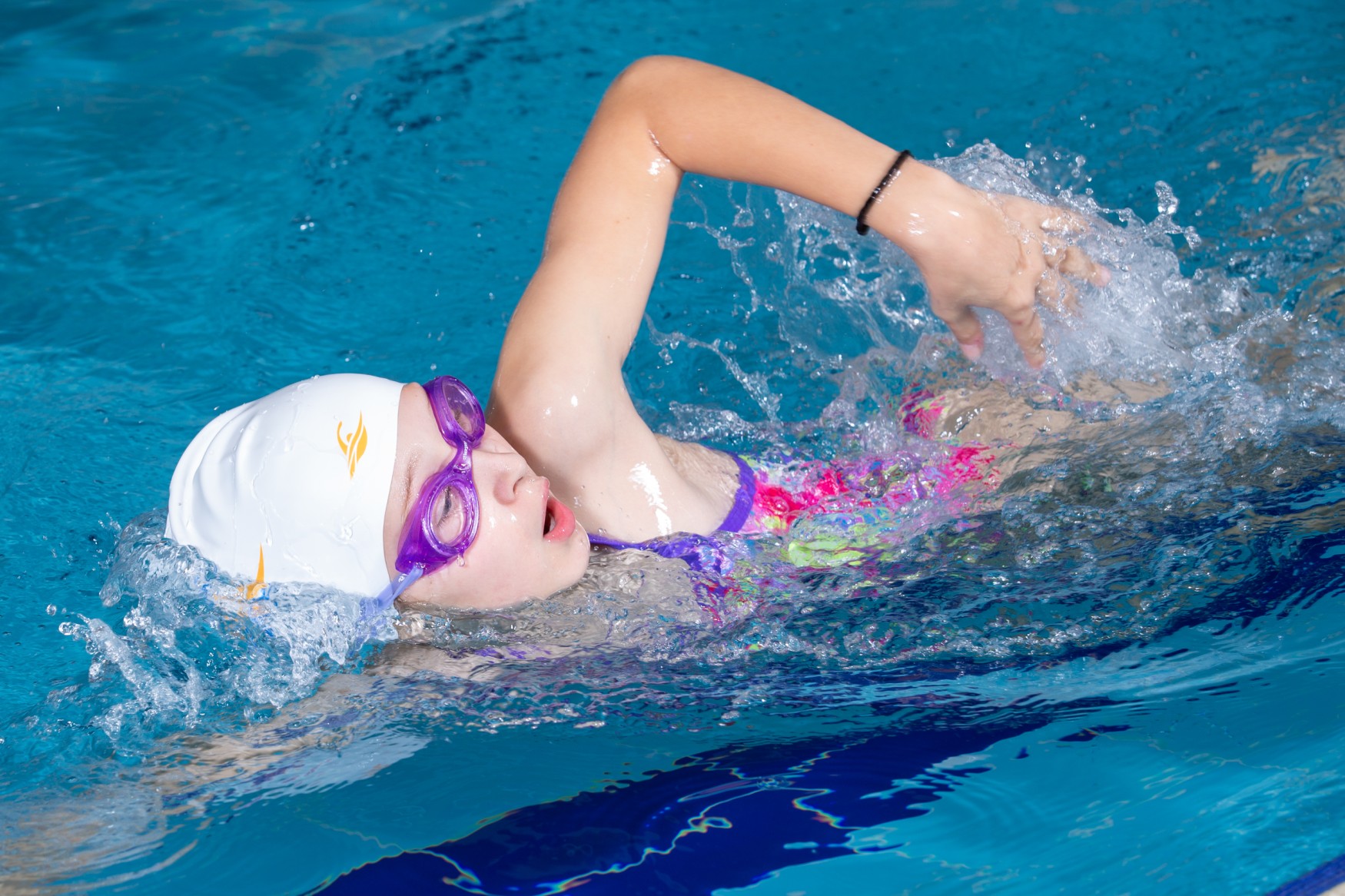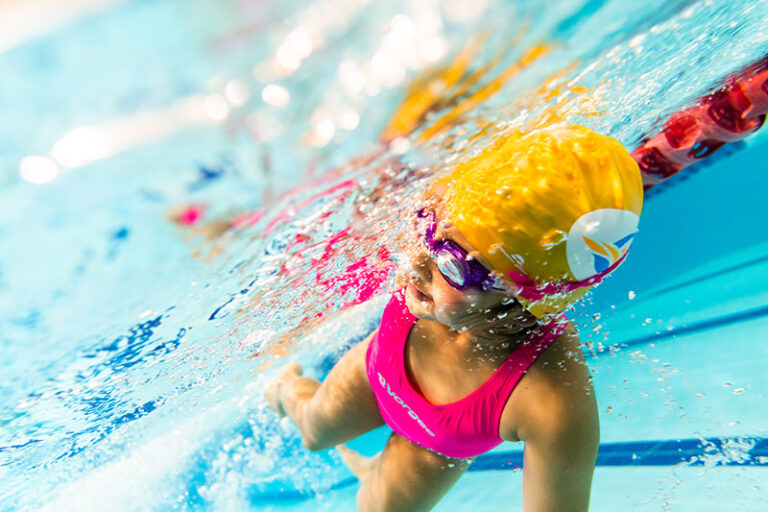
Future Olympic champion banned from swimming in front of men.
Public outcry as swimming stars are forbidden from racing in anything other than Breaststroke and banned from being seen in swimsuits by men.
“A girl who is in the habit of exposing herself at public swimming carnivals is likely to have her modesty hopelessly blighted,” says Rose Scott, President New South Wales Ladies’ Amateur Swimming Association.
Those were the circumstances that faced the world’s first female Olympic Gold medallist Fanny Durack (pictured left).
At the turn of the 20th century Australian women were 20 years away from the vote, they swam in all girl’s baths, only allowed to race breaststroke.
Two working class girls fought to change it all, beat the world in the process and established a legacy that inspired generations.
On this International Women’s day we remember Fanny Durack and training partner Mina Wylie (right).
They trained at what are now known as Wylie’s baths at Coogee beach and helped pioneer the Australian Crawl, today’s Freestyle.
They were thought to be the two fastest women in the world, having established several unofficial world records.
The 1912 Stockholm Olympics would feature the first events for women, the four previous Modern Games were mostly celebrations of white male supremacy.
Some women did compete in mixed events in sports such as sailing and archery. The times were very different.
Indeed when Australia’s first Olympic swimming champion Freddy Lane went to Paris, he won an obstacle course climbing in and out of boats and then swimming in between.
Freddy also won the 200m freestyle smashing the world record. The event was held in the Seine and Freddy and the other finalists swam with an extremely fast current.
Wind the clock forward just a little and protesters were up in arms about the possibility of women swimming in front of men.
Scott, ironically a feminist, led the chorus of criticism “I am afraid that the rescission of the rule [preventing mixed audiences] will lead to a loss of respect for the girls and the increasing boldness of the men,” Scott said at the time.
There were many who agreed with Scott. The matter was even debated in the Australian Parliament, but the local lord Mayor and others threw their support behind the girls.
Eventually, after a public outcry, the ban on mixed swimming was overturned and the girls were given a reluctant green light. However there was little financial or practical support.
The Australian men in charge of selecting the team declared sending women to Sweden would be a waste of time and money.
The boat carrying their male Olympic team-mates duly sailed to Stockholm without them.
But Durack and Wylie would not let that stand in their way. With the support of a local newspaper they got busy raising funds. They did so with a series of swimming carnivals featuring everything from acrobats to diving clowns.
In the end they raised the money needed, boarded another boat and made it to starting line in Sweden. Francis “Fanny” Durack took the Gold in a world record of 1.19.8 seconds with Wilhelmina “Mina” Wylie finished second.
They may have been late, they may have been unwanted by the men who selected the team, they may have had to pay their own fare, but these two Aussie pioneers took the first Gold and Silver medals ever awarded to women at the Olympics.
Fanny would go on to be the dominate swimmer of her generation, beating the world over every freestyle distance for 8 years. Sadly WWI interrupted her Olympic career.
In 1920 Fanny was struck down with typhoid fever and pneumonia a week before Australia’s athletes were scheduled to sail to Europe for the Antwerp Games.
Mina would continue to compete in Australia until 1934, winning a staggering 115 Gold medals at NSW and Australian Championshjp level.
They paved the way for the next generations of women, from Dawn Fraser to Shane Gould, Susie O’Neill and Cate Campbell.
And this year, the last bastion of Olympic swimming sexism has been removed. It was originally felt women could not compete in major endurance events. As such there has never been a Women’s 1500m Freestyle at the Olympic Games.
For the men, the 1500 has long been regarded as “ours” Boy Charlton won Australia’s first Olympic Gold, and the list of greats is mighty impressive. Rose, Konrads, Windle, Perkins, Hackett.
In Tokyo women will swim the 1500m at the Olympics and men will be given a crack at the 800m. For the first time the men’s and women’s programs will be exactly the same.
Fanny Durack and Mina Wylie, who were both posthumously inducted into the International Swimming Hall of Fame, would be smiling.




